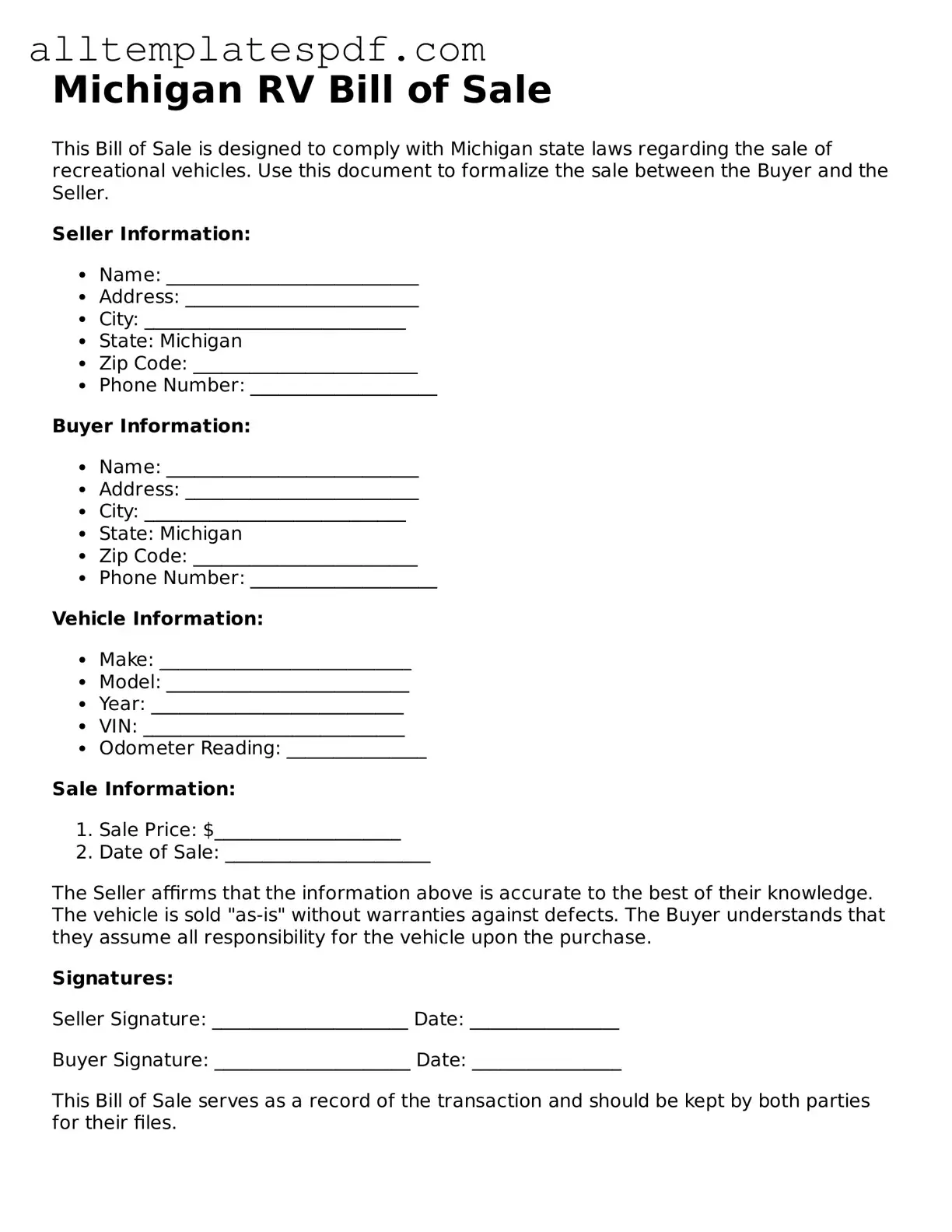Blank RV Bill of Sale Template for the State of Michigan
The Michigan RV Bill of Sale form is a crucial document that records the transfer of ownership for recreational vehicles in the state of Michigan. This form not only protects both the buyer and seller but also ensures that the transaction is legally recognized. To facilitate a smooth transfer, it’s essential to complete this form accurately—get started by clicking the button below.
Open Editor

Blank RV Bill of Sale Template for the State of Michigan
Open Editor
Fast and easy form completion
Complete RV Bill of Sale digitally — fast and easy.
Open Editor
or
↓ RV Bill of Sale PDF Form
